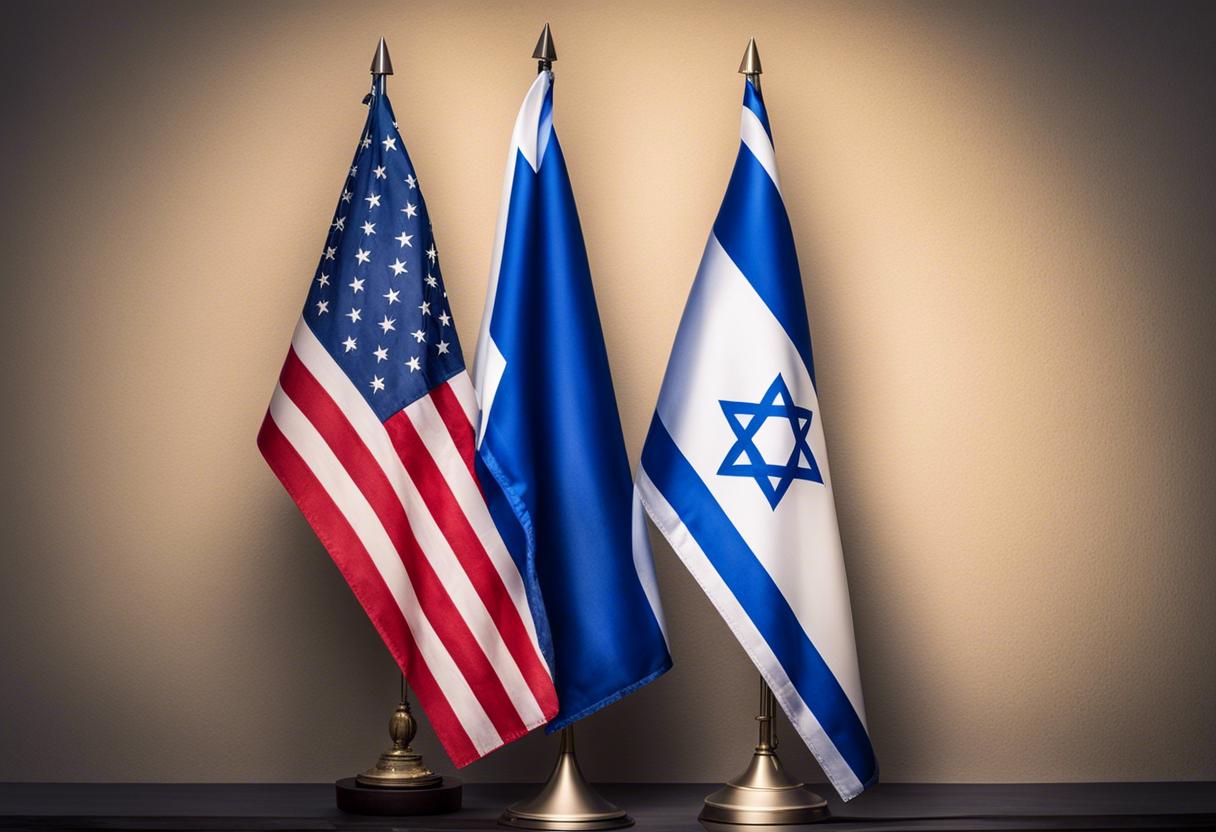Officials from Israel expressed dismay towards the American President, Joe Biden, on Thursday, following his warning that certain arms supplies to Israel could be halted if the latter decides to invade Rafah. Israel’s ambassador to the UN, Gilad Erdan, voiced his displeasure on Israel’s public radio, stating that the president’s threat was disappointing and hard to take in, especially considering Israel’s gratitude towards him since the commencement of the war.
Despite global objections, Israel has been firm in its decision to send tanks and carry out focussed raids in Rafah’s eastern areas. As per Israel, the city is the final stronghold of Hamas, located in the southern part of the Gaza Strip. However, the city bordering Egypt is also teeming with Palestinian refugees.
Earlier this week, Israeli tanks assumed control of the Rafah border crossing on the Gaza side, thereby cutting off a crucial aid passage and leading to the evacuation of 80,000 people, as indicated by the United Nations.
Biden’s stern warning was aired on CNN, where he categorically stated that if Israel ventured into Rafah, the US would withdraw its weapon supplies. He unequivocally spoke out against Israel’s actions, adding that the bombing had resulted in casualties among Gaza’s civilian population.
Mr Erdan opined that the US president’s comments could offer hope of success to Israel’s adversities, particularly Iran, Hamas, and Hizbullah. He questioned how Israel was supposed to meet its objectives if it were barred from entering a critical area like Rafah, where Hamas leaders, hostages, and thousands of terrorists are reportedly present.
He further asserted that this predicament involved offensive bombs, not defensive weapons and ultimately, Israel would need to prioritise the security of its citizens.
Bezalel Smotrich, Israel’s extreme-right finance minister, expressed that his government would continue to pursue its aims in Gaza, unperturbed by the US’ potential threat. In an official statement, he aspired for a total annihilation of Hamas and the safe return of Israeli hostages and advocated for a prompt and total invasion of Rafah.
The choice made by President Biden has been sternly criticised by House Speaker Mike Johnson and Senate Republican chief, Mitch McConnell. They claimed that they only learned about the delay in military aid through news coverage, despite the Biden team insisting no such holdups were being planned.
On Thursday, Israeli forces marshalled tanks near residential areas of Rafah, according to both Hamas militants and local inhabitants. While ceasefire negotiations were ongoing in Cairo, Palestinian armed organisations, Hamas and Islamic Jihad, proclaimed that their combatants had attacked Israeli forces on the periphery of Rafah’s east, launching mortars and anti-tank rockets at Israeli positions.
In Rafah’s east, the only major urban region in Gaza yet to be invaded by Israeli terrestrial forces, residents reported the reverberation of detonations in conflicts between Palestinian combatants and incoming Israeli soldiers. William Burns, the director of the CIA, had retreated from Jerusalem to the capital city of Egypt and recommenced talks on Thursday with intermediaries striving to obtain a ceasefire, as told by two Egyptian security sources.
On the other hand, the World Health Organisation (WHO) announced that it only has fuel for its medical activities in southern Gaza for three more days, and due to shortages, one of the three hospitals in Rafah city has already ceased operations, as reported by Associated Press.
Since Tuesday, when the Israeli military seized control of the Palestinian side, the Rafah border crossing with Egypt has been shut off, preventing crucial humanitarian aid from entering. Israel announced it had reopened the Kerem Shalom crossing, another primary aid access route, on Wednesday. However, according to the World Food Programme, no aid has entered and no one is available to receive it on the Palestinian side.
The UN has stated that northern Gaza is currently experiencing a severe famine. -Agencies

